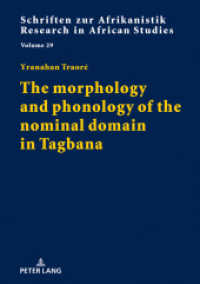- ホーム
- > 洋書
- > 英文書
- > Science / Mathematics
Full Description
Mathematical Foundations of Computer Science, Volume I is the first of two volumes presenting topics from mathematics (mostly discrete mathematics) which have proven relevant and useful to computer science.








